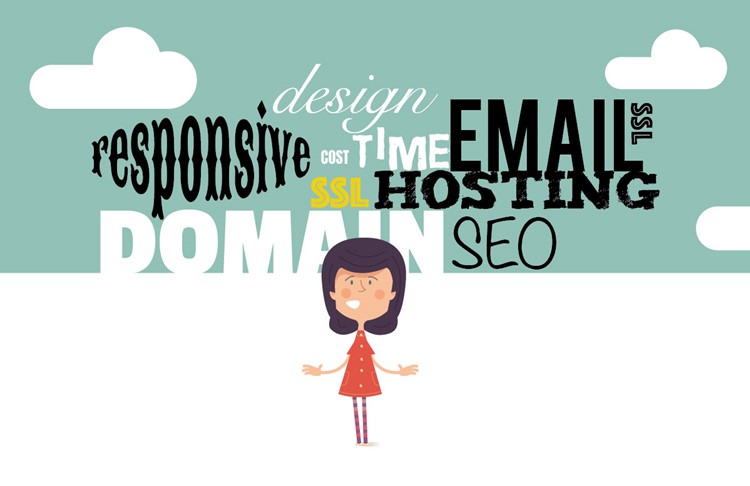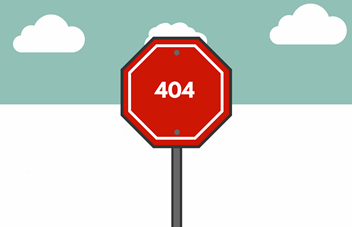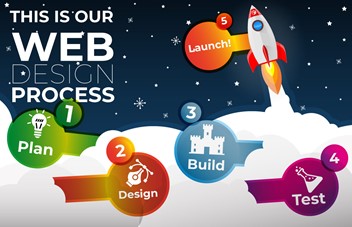Over the past year we've answered quite a few questions on websites and web design, here is a list of all our FAQs:
HOW MUCH DOES A WEBSITE COST?
It really does depend on what you want which is not the answer anyone wants. It is, however, the truth. There are numerous factors which affect cost from whether you want a bespoke design, the amount of functionality you require, how much you want to manage yourself, whether you need eCommerce or integration with other systems, the list goes on.
The cost will also be dependent on the type and experience of the provider - a freelancer is usually cheaper than an agency due to reduced overheads, but the agency can offer wide expertise than just one person and often offers more reliability and better response times.
As a agency, we would always work with you to establish the best approach for your business and your budget and provide you with a fixed cost and payment plan upfront.
Our prices for a basic mobile-friendly small business website, with a content management system, start from £1,000. For a unique, bespoke design with more extensive functionality, prices start from around £3,000. Bespoke websites are costed after having spoken with you in some depth about your requirements and creating a solution exactly for you.
Would you like an indicative cost for your project?
Provide us with some details on our Tell Us More form and we'll get back to you.
HOW LONG DOES IT TAKE TO BUILD A WEBSITE?
This does depend on a whole host of factors from whether it is a bespoke web design or from a template, whether you need any specific custom functionality, where your content is coming from and how much there is, to name a few.
At the start of a web design project, we will work to determine responsibilities and a timeline so it is completely clear what is expected. We will keep in regular contact to keep you updated and give you early notice of any issues which could affect the timeline.
On average though, a website for a small business would take around a month to 6 weeks to build, thoroughly test and put live.
WHAT DOES RESPONSIVE MEAN?
A responsive website is a website that adapts to the device it is being viewed on. For example, if you view a site on a laptop and then view the site on a mobile, you should have equally good experiences of that website but not the same experience. On the mobile, the website may have a slightly different design and content may have moved to make it easier to navigate and view utilising the controls available on a mobile device.
A mobile-friendly website will give you the same user experience when you view it on a mobile device as well as a large screen. In contrast to the responsive website, there will not be a specific design for mobile usage, but the whole site will be designed and built in such a way that all features are available and equally usable on all size device.
WHAT IS SEO?
SEO stands for search engine optimisation. It is a way of structuring your site and its content to ensure that you have the best chance of your website being returned in a good position when someone does a Google search for terms relevant to your business.
SEO over the years has grown and changed and become an industry in its own right. There are many companies whose sole purpose are to boost your placement on google through various techniques and campaigns.
When building a site we will always implement best practices for SEO. For more advanced SEO advice or paid campaign we will always refer you onto our trusted, specialist partners.
WHAT IS SSL?
SSL stands for Secure Socket Layer and is a security protocol to enable you to access a website securely. When you access a site which has SSL you will notice that the web address begins https:// rather than http:// (note the additional “s”). This means your interaction with that website is encrypted and information you enter can’t be stolen by hackers.
Google sees websites which use https:// as safe and the use of https may boost the ranking or your website over a non secure website. As of January 2017, Google has started differentiating between those websites that are secure and those that aren’t secure in their Chrome browser. You may see either the word “secure” or an “I” at the start of the web address. Users will have more confidence in clicking on your site if it is secure.
WHAT IS UX?
UX is short for user experience.
When designing a website it is very important to consider the user’s experience on the website.
An enjoyable user experience will ensure that user potentially returns, buys or recommends the website.
A bad user experience means it’s highly unlikely that the user will progress further on a website and leave very quickly.
When designing a website, we make sure we understand the needs of your website users before creating the design and considering the look, the layout, the content, the functionality, the interaction and how it all works together.
WHAT IS ACCESSIBILITY?
Well designed websites allow everyone to enjoy their content. There are various techniques and guidelines which help make website content accessible.
We've listed some of the guidelines here:
- Ensuring images are described with alternative text, known as “alt” text
- Ensuring all website functionality can be accessed via the keyboard only
- Providing descriptive information for links
- Ensuring adequate contrast between background and text
- Providing captions and transcripts for video
- Providing transcripts for podcasts
More detailed information can be found on the World Wide Web Consortium (W3C) website in particular on the Web Accessibility Initiative pages.
WHAT IS WEB HOSTING?
Web hosting is the provision of space on a web server to store your website. The web hosting company will also provide connectivity to the server so your website can be accessed by people using the public internet. You usually “rent” this space for a monthly fee (sometimes discounted if you pay annually).
WHAT IS A DOMAIN NAME?
A domain name is the easy to read name of your website. For us it's carbon-pixel.co.uk.
When choosing a domain name it's important to make it relatable to your business. Keeping short and pronounceable makes it easy to remember accurately. You should also use an appropriate domain name extension i.e. .co.uk, .net. .com etc
The number of extensions available has dramatically increased over the years, however, .com still remains the most widely used.
A full list can be found on the https://iwantmyname.com website.
Over the coming months, we will be creating more FAQ posts to answer all your questions. If you have a question we haven't answered, please feel free to ask us on [email protected].





